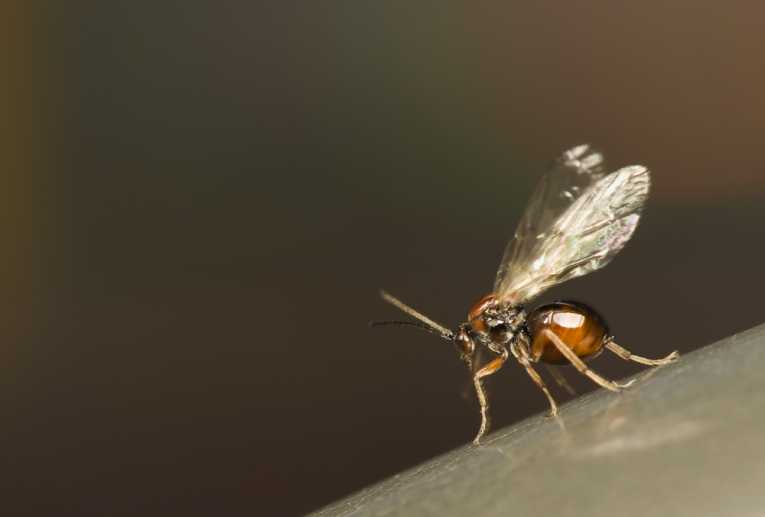Ecology can cause species to diverge because they become reproductively isolated in special circumstances. Evolving animals here show how mating with those from alternative food plants is limited compared to similar animals from different (allopatric) locations. The animal best suited to this study was the gall wasp, familiar by virtue of its gall apples on oak trees and elsewhere.
Belonocnema treatae is an American gall wasp that develops as a sexual generation in root galls in spring. It inhabits two related oak trees in the southeast US (Florida in this study paper, published in the Royal Society Journal Biology Letters), which occupy different woodland.

Quercus virginiana; Credit: © Scott P. Egan
Quercus virginiana forms communities in moister, nutrient-rich, higher pH sites while the Quercus geminata tree differs also in flowering time, growth and photosynthetic rates. Scott P. Egan, Glen R. Hood, Jeff L. Feder and James R. Ott of Notre Dame University and Texas State University took six samples of the wasps from the root galls.
The next step was to measure the length of the right hind tibia as an index of general body size (sex differences were not noted, so the results were pooled). Given a hour to mate, pairs were then observed from:
(1) allopatric and
(2) different host sources.
In addition 44 wasps were also sampled genetically for sequence divergence on two mt DNA genes.
Variation in the populations was negligible because all of these insects have diverged very little from a recent ancestor. Partial sexual selection was taking place as a bi-product of adaptation to the two host trees. As time goes on, host use and its reproductive isolation will increase genetic barriers to breeding until presumably new species become distinct.

Leaf Galls; Credit: © Scott P. Egan
Insects have always proved invaluable in genetics because of their rapid generation time and many variations. In this case, yet again, we have evidence relevant to all organisms' evolution. As the wasp naturally isolates itself, the evidence is almost the same as in Darwin's Galapagos finches, which were geographically isolated. The only difference is that we can almost observe the natural selection by sexual selection as it occurs in time. This is one to watch, as more evidence accumulates from the dynamic genetic situation.










